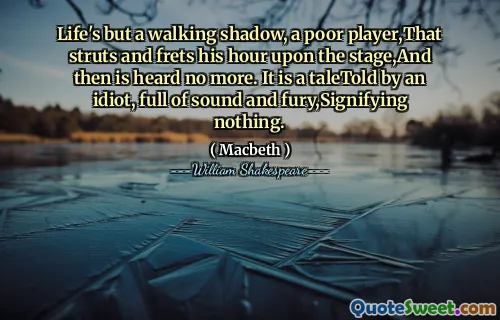And nothing is, but what is not.
In Shakespeare's "Macbeth," the quote "And nothing is, but what is not" encapsulates the theme of illusion versus reality. Macbeth grapples with the deceptive nature of existence, suggesting that what appears to be true may, in fact, be false. This idea resonates throughout the play, where ambition and moral decay blur the lines between truth and deception. The quote reflects the protagonist's internal struggle as he navigates his desires and the consequences of his actions. The distortions of reality lead to paranoia and guilt, illustrating how ambition can warp perception and lead to a tragic downfall. Ultimately, this line serves as a powerful commentary on the nature of reality itself.
In Shakespeare's "Macbeth," the quote "And nothing is, but what is not" encapsulates the theme of illusion versus reality. Macbeth grapples with the deceptive nature of existence, suggesting that what appears to be true may, in fact, be false. This idea resonates throughout the play, where ambition and moral decay blur the lines between truth and deception.
The quote reflects the protagonist's internal struggle as he navigates his desires and the consequences of his actions. The distortions of reality lead to paranoia and guilt, illustrating how ambition can warp perception and lead to a tragic downfall. Ultimately, this line serves as a powerful commentary on the nature of reality itself.
